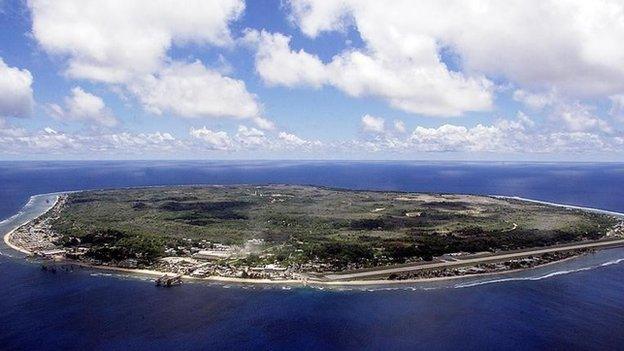Australia asylum: Nauru backtracks on refugee application pledge
- Published
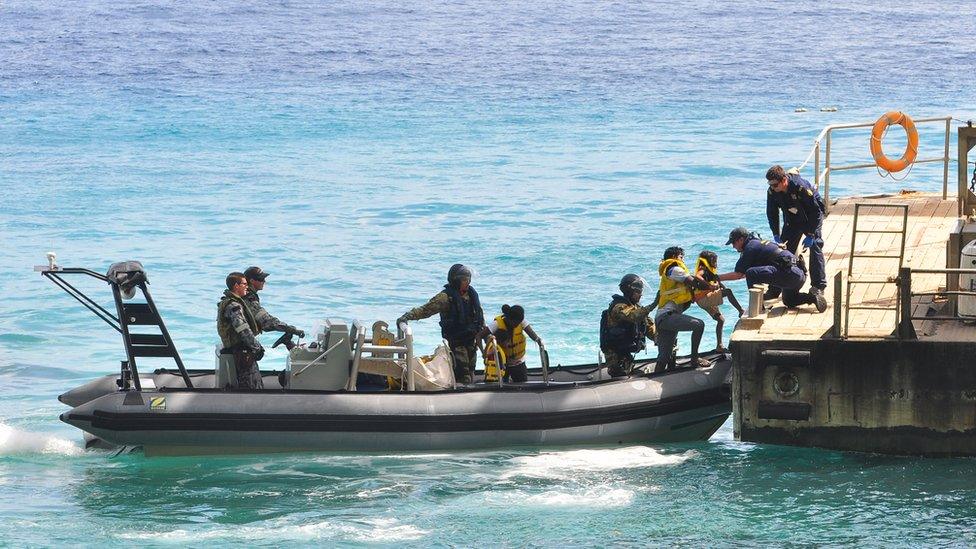
Asylum seekers trying to reach Australia by sea have been moved to offshore detention centres in the Pacific
Nauru has rowed back on a pledge to process within a week all 600 outstanding refugee claims from asylum seekers at an Australia-funded centre.
A Nauru official told the Australia Broadcasting Corporation (ABC) that 400 claims would be processed by Sunday.
Claims from people who had left Nauru for medical treatment, and from their relatives, would be delayed, she said.
Australia's top court is reviewing the legality of the offshore camps housing Australia-bound asylum seekers.
Under the policy, anyone who tries to reach Australia by boat to claim asylum is held in the centres on Nauru and Manus Island, Papua New Guinea.
Australia says its measures - supported by both main parties - have deterred human traffickers.
But activists have reported harsh conditions and abuses at the camps.
At a High Court hearing this week, they argued that the government had violated the constitution by funding the offshore centres.
The court has yet to announce its decision, in what is being seen as a test of the government's tough immigration policy.
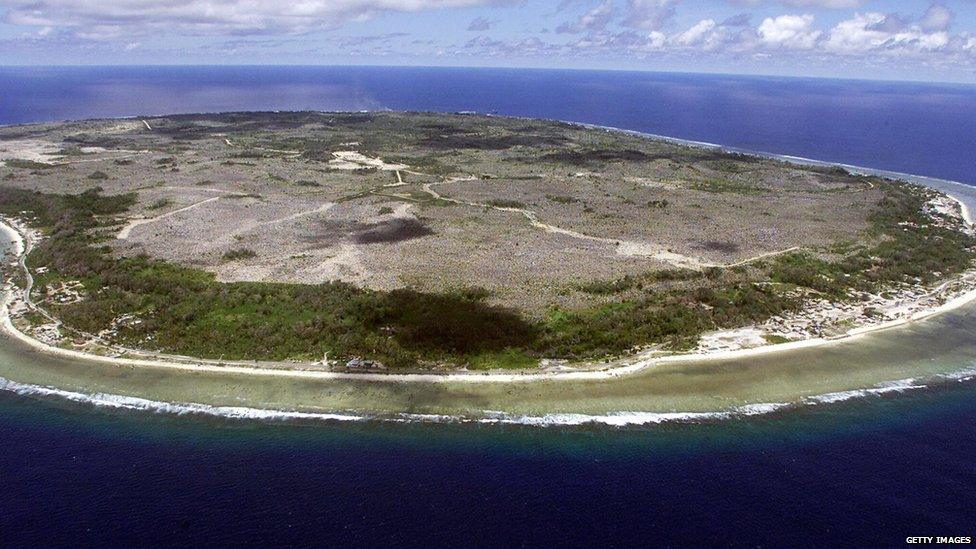
Nauru: The world's smallest republic
In an interview with ABC, external, Nauru's deputy director at the Department of Justice and Border Control, Shyla Vohra, said a pledge to process all outstanding refugee claims within a week did not apply to those who were currently outside Nauru, or their families.
"There are some people who are overseas for medical transfers," she said, adding that their claims would be processed later.
Nauru said it would process all the outstanding refugee claims, just days before the Australian court hearing.
It also said it would relax detention conditions, allowing residents full freedom of movement on the island.
While rights groups welcomed the move, they also questioned whether its timing was intended to pre-empt criticism at the court hearing - a suggestion rejected by the Australian government.
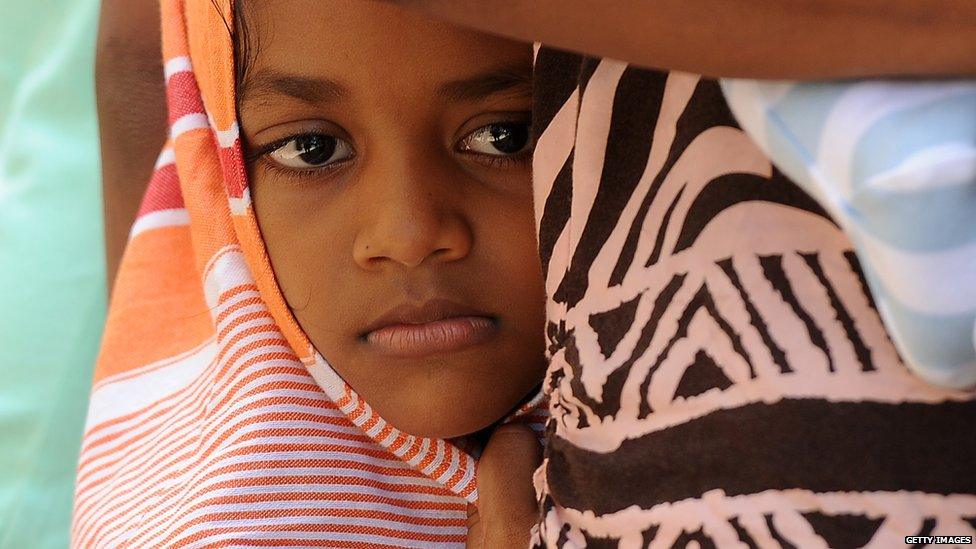
Australia receives asylum seekers mainly from Afghanistan, Sri Lanka, Iraq and Iran
The High Court case was brought on behalf of detainees from the offshore camps who were moved to Australia for medical treatment, including a pregnant Bangladeshi woman who now has a 10-month-old child.
Activists say the government does not have the right to send the detainees back to the camps.
Last month, an Australian senate report found conditions on Nauru were not "appropriate or safe" for detainees and urged the government to remove children from the centre.
It said allegations of rape and abuse should be investigated and access given to journalists and rights workers.
Last week, ABC aired allegations, external by a Somali woman who said she had been raped in Nauru.
Australia's new Prime Minister Malcolm Turnbull has defended the offshore migrant detention centres- a central policy of his predecessor Tony Abbott - by saying they save lives.
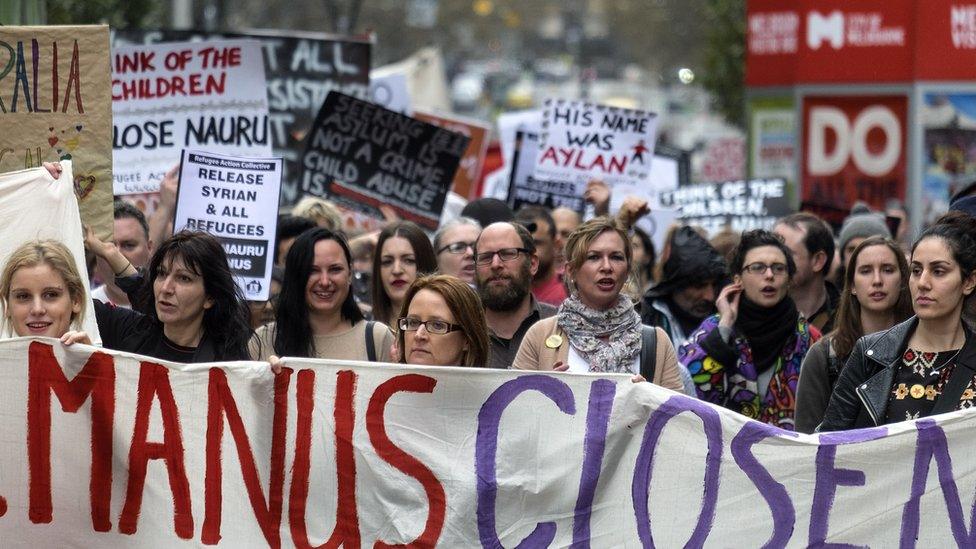
Protesters and activists have been urging the government to soften its stance on asylum

Australia and asylum
Many asylum seekers - mainly from Afghanistan, Sri Lanka, Iraq and Iran - travelled to Australia's Christmas Island by boat from Indonesia.
The number of boats rose sharply in 2012 and early 2013. Scores of people died making the journey.
To stop the influx, the government adopted hard-line measures intended as a deterrent.
Everyone who arrives by boat is now detained and processed in Nauru and Papua New Guinea. Those found to be refugees will be resettled in PNG, Nauru or Cambodia.

- Published2 October 2015
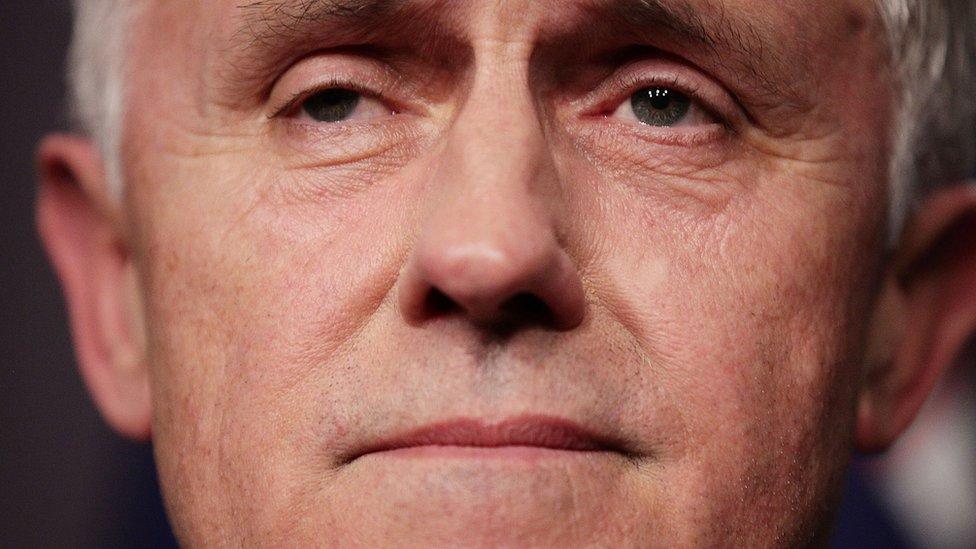
- Published1 September 2015
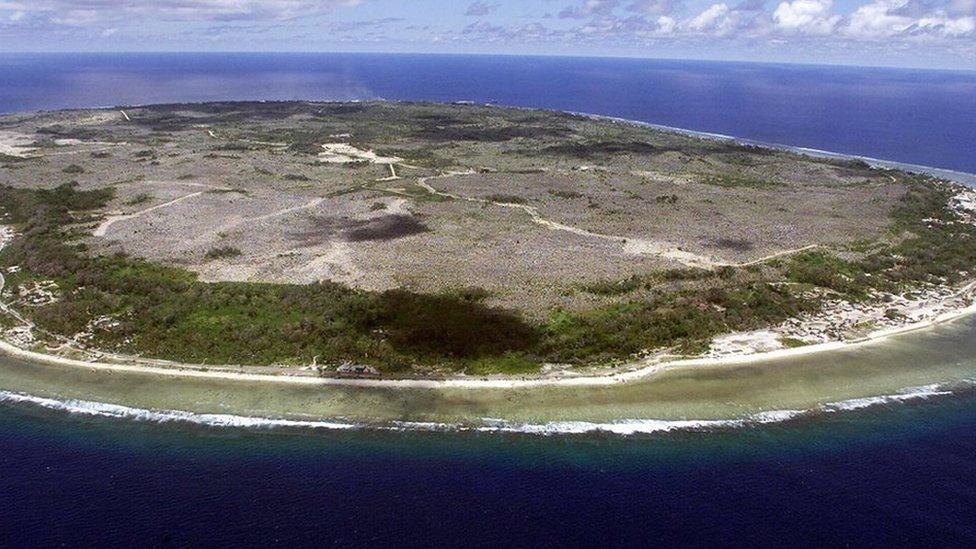
- Published31 August 2015
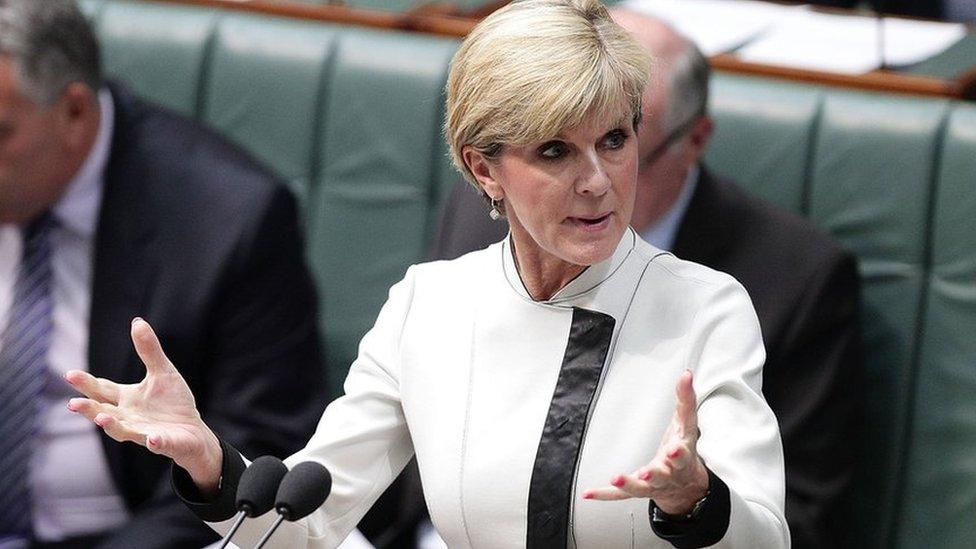
- Published21 August 2015
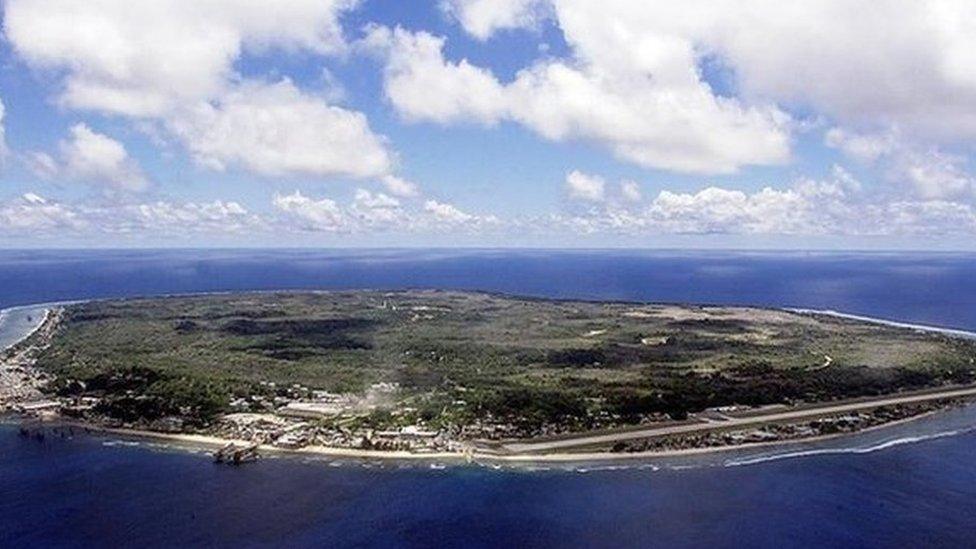
- Published19 May 2015
